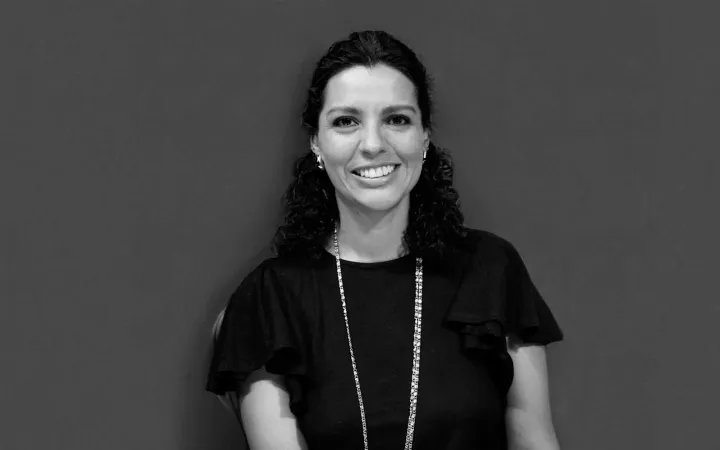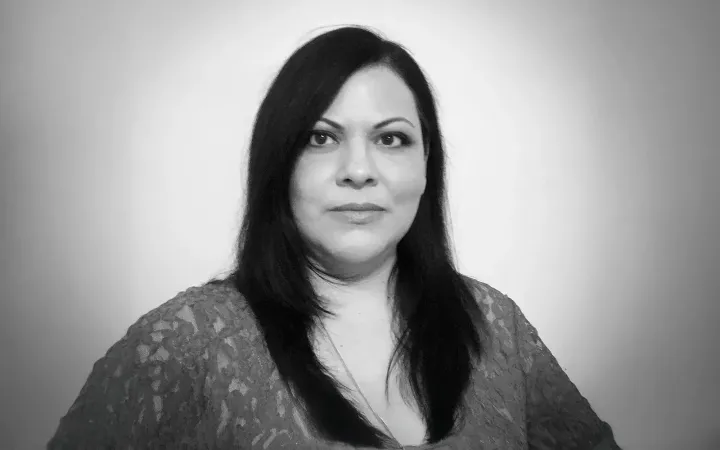
Por Samantha García*

Mucho antes de trabajar en Bumble, conocí a mi ahora esposo en la app. Debo confesar que, hace 5 años, aún tenía ciertas dudas sobre cómo funcionaría, el tipo de personas que conocería, etc. Bumble no fue la primera app de citas en la que estuve, pero sí en la que me sentí más cómoda y segura. Y comprendí porqué era así desde la primera entrevista durante el proceso de mi reclutamiento. Había encontrado una empresa que no solo me permitiría tener un crecimiento, sino que compartía mis valores y se ponía “manos a la obra” en temas incómodos de la industria pero necesarios de abordar para realmente crear espacios seguros (online y offline) para las mujeres.
Una de estos temas, es el ciberacoso. Si bien el acoso ha existido durante años, el mundo digital ha exponenciado su alcance, velocidad y anonimato. Como lo aprendimos este año gracias al estudio presentado por el INEGI, las mujeres son, con mayor frecuencia, objeto de acoso en línea en comparación con los hombres (9.8 millones de mujeres vs. 7.6 millones de hombres). Más allá de los datos de incidencia, en Bumble queríamos conocer los efectos del ciberacoso en la vida de las personas, qué tanto se conocen los distintos tipos de éste y si las personas lo consideran realmente un problema serio o se sienten ajenas a estas situaciones.
Cuatro de cada 10 personas en México ha sufrido acoso digital o conoce a alguien que ha vivido este tipo de hostigamiento. Cuatro. Esto lo sabemos gracias a una encuesta que Bumble comisionó a Ipsos[1]. Este estudio reveló que el acoso cibernético en algunas de sus formas más comunes (bodyshaming o humillación corporal, acoso sexual e insultos en línea, doxing, porno de venganza y cyberflashing) es percibido como un problema grave por un número significativo de los encuestados en México.
Además, es percibido como un problema que afecta principalmente a las mujeres (según el 98% de los encuestados) y a los miembros de la comunidad LGBTQIA+ (75%).
En este estudio también se reveló que el ciberacoso tiene un enorme impacto para quienes lo experimentan: 8 de cada 10 personas sufren de ansiedad o estrés luego de vivir una situación así, y poco más de la mitad abandonan o modifican sustancialmente su vida digital, ya sea porque dejan de usar sus redes sociales u otras aplicaciones, y hay quienes incluso suspenden definitivamente cualquier contacto con amigos y familiares.
Las cifras, aunque contundentes, no siempre nos concientizan de que detrás de cada una de ellas hay una persona con una historia de vida. Para esa persona, no hubo un 40% de acoso digital, hubo un 100% y esto para muchas, significó angustia y vulnerabilidad. Los casos en medios de comunicación sobre este tipo de violencia no cesan y esto es un claro llamado para todas las partes: sociedad, industria, gobierno, a trabajar en conjunto por la creación de un mundo digital más amable y empático.
Desde hace años, el equipo de liderazgo de Bumble se ha enfocado en acciones concretas para mejorar el espacio digital. Por mencionar un par de ejemplos, Bumble trabaja con la organización sin ánimo de lucro Partnership on A.I. (PAI), una coalición comprometida con el uso responsable de las tecnologías de inteligencia artificial. Más allá de esto, la empresa tiene un historial de lucha contra la misoginia, el acoso y la toxicidad en Internet. Ha implementado funciones de seguridad en la propia aplicación de Bumble, como Private Detector, una herramienta que ayuda a proteger a nuestra comunidad de imágenes lascivas no deseadas.
A la par, existen alianzas con organizaciones como Bloom, que apoyan a mujeres que vivieron alguna experiencia de abuso sexual; y se ha ayudado a impulsar iniciativas de ley contra el cyberflashing en los Congresos de diversos estados de la Estados Unidos y en Reino Unido.
Pero somos conscientes de que una sola empresa no generará un cambio real y permanente. Se requiere de la colaboración de organizaciones, plataformas tecnológicas y usuarios para lograr un entorno seguro e inclusivo, donde todos podamos disfrutar plenamente de los beneficios del Internet. Todos tenemos un papel que desempeñar para lograr que el mundo digital, y el real, sean más amables. Tener conciencia de nuestras conductas y ser más empáticos es un buen comienzo que está en nuestras manos.
*Se unió a Bumble en 2021 dirigiendo al equipo de marketing de LATAM. Ahora, fruto de su liderazgo, encabeza la gestión de marketing para Norteamérica y Latinoamérica. Conoció a su pareja de 5 años en Bumble y esperan a su primer bebé.
[1] La investigación fue encargada por Bumble a Ipsos, que encuestó a 300 usuarios de redes sociales en México. Las entrevistas se realizaron en línea a hombres y mujeres de entre 18 y 55 años. Margen de error +5.66 puntos por 95% de nivel de confianza en el país. La encuesta se realizó entre el 7 y el 16 de junio de 2023.
Las opiniones expresadas son responsabilidad de sus autoras y son absolutamente independientes a la postura y línea editorial de Opinión 51.
Más de 150 opiniones a través de 100 columnistas te esperan por menos de un libro al mes.






Comments ()